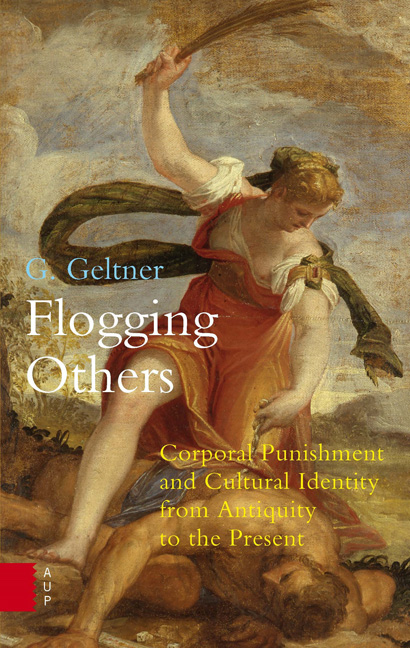Summary
Evidence for the use of corporal punishment – flogging, branding, mutilation, dismemberment, beating, stretching, and other forms of intentional physical alteration, discomfort and pain, both brief and lasting – emerge from a very broad range of sources. These include texts, archaeological remains, and figurative art, from excavated Chinese oracle bones to digitally archived videos on the World Wide Web. The present chapter and main section of this book will trace some continuities and discontinuities attested by these diverse sources, within and across a number of cultures, regions, and religions, and with a strong focus on the Western world. It is not meant to provide anything more than a selection of case studies that test the interpretative approach related in the previous chapter and that challenges some lingering assumptions about corporal punishment's trajectory and its past and present application. Specifically, it demonstrates that corporal punishment continuously waxed and waned in different cultures at different times; and that, despite the promise of the Enlightenment and modernity, there is little evidence that we are at the tail end of a practice that has accompanied human civilization for millennia.
A key factor in corporal punishment's resilience has been its multivalence and flexibility. Corporal punishment meant different things to different cultures at different times, and it is this historical and anthropological perspective that the present chapter underscores, while demonstrating the sometimes explicit and sometimes merely implicit rationale underlying such measures. The explication is important because premodern penal acts in general and corporal punishment in particular are often seen as thoughtless and brutal, repressive rather than restorative. Yet there is much evidence illustrating, on the one hand, that there was more to such practices than atavism, and on the other that corporal penal acts, in their complexity, have boldly marched through modernity's gateway. Corporal punishment's continuous adaptability thus challenges a prevalent understanding of present-day practices of corporal punishment as a lingering and burdensome legacy of our past or at worst as a regression or an aberration in the process of civilization. A new understanding of corporal punishment that abandons a false dichotomy offers a critical viewpoint, one that will inform both penological and pedagogical debates and interrogate a salient aspect of an accepted non/Western divide.
- Type
- Chapter
- Information
- Flogging OthersCorporal Punishment and Cultural Identity from Antiquity to the Present, pp. 29 - 82Publisher: Amsterdam University PressPrint publication year: 2014



